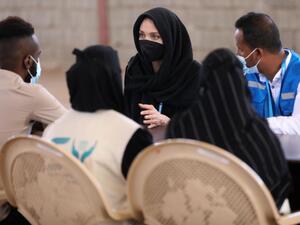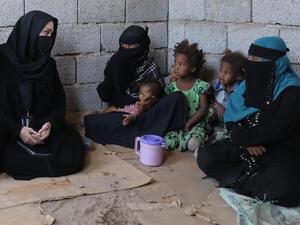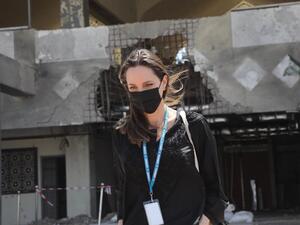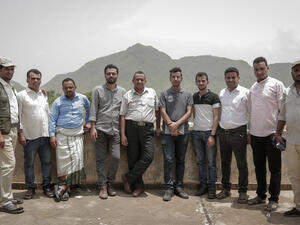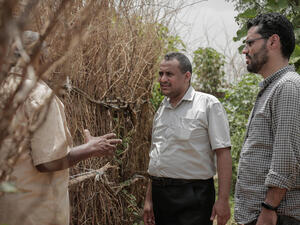Yemen: Refugee registration to start shortly
Yemen: Refugee registration to start shortly
The Government of Yemen and UNHCR are about to begin a large-scale operation to register thousands of refugees in Yemen, most of them from Somalia. The Yemeni authorities agreed on Sunday to start registering refugees at six newly-created centres around the country - the first such exercise since the last registration in June 2003. Registration is due to start next week in the capital Sana'a before moving on to other parts of the country. Each of the six centres will then become a permanent registration centre.
Yemen's location on the Gulf of Aden has turned the country into the first port of call for many Somalis fleeing the unrest in their country. Thousands of people cross the gulf every year, many of them on unsafe vessels run by smuggling rings. Hundreds perish in the attempt, prompting the High Commissioner for Refugees António Guterres earlier this year to call for international action to address the root causes of the problem.
The Yemeni authorities automatically grant refugee status to Somali citizens arriving in Yemen (prima facie [refugee status]). At the end of last month, there were some 79,000 refugees registered with UNHCR in Yemen, more than 68,000 of them from Somalia. Most Somalis live in urban areas, with some 7,500 staying at Kharaz camp, in the south of the country.
Our staff in Sana'a also reports that dozens of Somali refugees have been staging protests outside the UNHCR office in the Yemeni capital since last week. On Monday, some 300 people were outside the building, many calling for resettlement to a third country. We are engaged in a dialogue with these refugees in order to clarify some of the principles of resettlement, a procedure which consists in finding a host country for refugees other than the first country of asylum, in this case Yemen.
Although resettlement is a solution for some refugees, resettlement places are few and only available for a small number of vulnerable cases, for example if refugees are still at risk or have severe difficulties integrating in the country where they first found asylum. UNHCR works closely with countries that are willing to consider refugees for resettlement, nevertheless the decision is always at the discretion of these countries. While states are obliged under the 1951 Convention to receive asylum seekers and refugees, no such obligation exists for resettling refugees.
UNHCR wishes to highlight the exemplary cooperation displayed by the Yemeni authorities in dealing with refugees. Yemen is one of the few countries in the region to have signed the 1951 Convention relating to the Status of Refugees, and has been very generous in receiving refugees.



